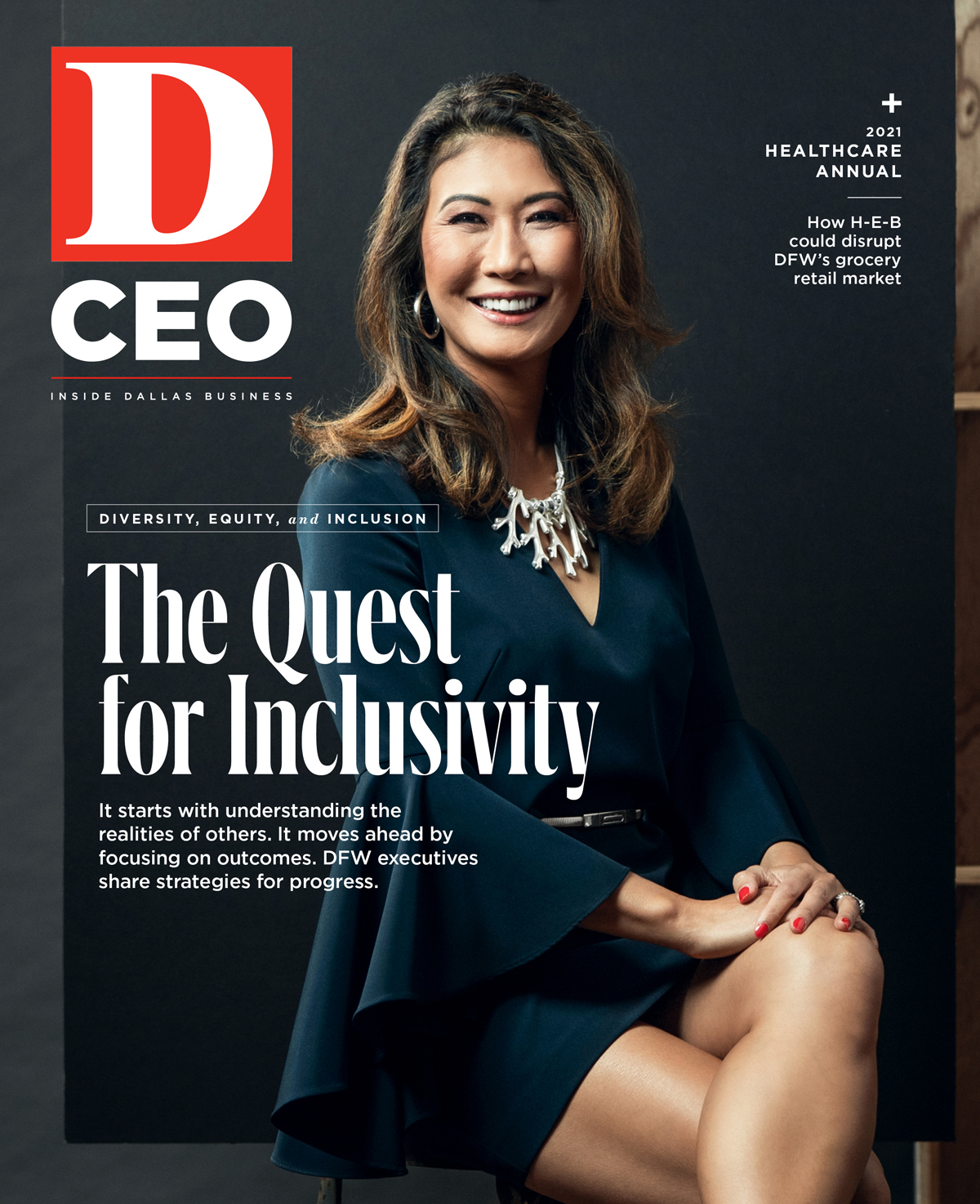Ashley Buchanan is a data-driven leader who says he wouldn’t describe himself as very creative. “But I know what kind of brand and company we want to create,” he adds.
Buchanan became CEO of Michaels in 2020 after a dozen years at Walmart and Sam’s Club, ultimately serving as executive vice president and chief merchant of U.S. e-commerce for the nation’s largest company. There, he learned a great deal about operations, autonomy, building teams, e-commerce, and facilitating cross-functional collaboration. “You get to see how a Fortune 1 company really works,” he says.
Buchanan stepped into his first CEO role with a vision to move Michaels away from its reputation as a discount retailer. About 20 months into the post, he has ramped up the chain’s digital presence, pushing it toward the omnichannel trend enveloping the retail sector. He has also re-marketed the brand to center on inspiration and creative support, providing project ideas and classes to Michaels’ consumers, or “makers,” as the company calls them.
The new approach better targets the brand’s wide-ranging audience of creatives, from children and hobbyists to those who sell products in bulk. Buchanan’s other moves include narrowing inventory, scaling back on seasonal and home décor, and moving his team into a new headquarters—remaining in Irving but shifting to a space that offers an open layout and more natural lighting. “We’ve always been an Irving company,” he says.
While at Walmart, Michaels was the first executive recruiting call that Buchanan seriously entertained, although many others come before. Michaels stood out.
Even the way we do our tech is dramatically different
Ashley Buchanan CEO, The Michaels Cos.
“I had known the company for so long. I grew up with it,” Buchanan says. His father had taught him about the stock market using the chain as an example. It was the first stock Buchanan ever bought.
He never dreamed that he’d grow up to lead the company through a merger with Apollo Global Management—a $3.3 billion deal that took the company private after a 2014 IPO that split it off from private equity firms Bain Capital and Blackstone. Going private will help support the company’s ongoing digital and physical transformation.
“It’s probably easier to do it privately than publicly,” Buchanan says. “I think we can go faster privately.”
He isn’t shy about his goal to make Michaels, which has more than 1,200 stores and about 44,000 employees, a leader in the specialty retailer space. He points to the company’s 180-person in-house coding team, which he says gives it a speed-to-market advantage over rivals.
“There’s no reason we shouldn’t be. Even the way we do our tech is dramatically different,” Buchanan says. “My goal here was, let’s fix the foundation of the brick-and-mortar business; let’s catch up from an e-commerce perspective; let’s start to get ahead of our nearest and dearest competitors.”
Prior to going private, Michaels reported net sales of $1.9 billion for the fourth quarter of 2020—a 12 percent gain over the same period in 2019. Same-store sales grew by 13 percent. The pandemic sparked a renaissance in crafting and helped expedite Buchanan’s strategies.
“I think it would have been harder to detox off that coupon/transactional relationship if it hadn’t been for COVID,” he says.
Milestones in Ownership
Earlier this year, affiliates of New York-based Apollo GlobalManagement acquired The Michaels Cos. and took it private. During its nearly 50 years in business, the company has undergone at least two mergers and three IPOs.
Businessman Michael Dupey founds Michaels Stores in Dallas.
The company, with just 16 locations, goes public.
The arts and crafts chain grows to 450 stores nationwide.
The Blackstone Group and Bain Capital Partners acquire Michaels Stores.
Now known as The Michaels Cos., it raises $472.6 million in an IPO.
Ashley Buchanan takes over as CEO of The Michaels Cos.
Apollo Global Management acquires the company in a leveraged buyout that values Michaels at $5 billion.
Get the D CEO Newsletter
Author







